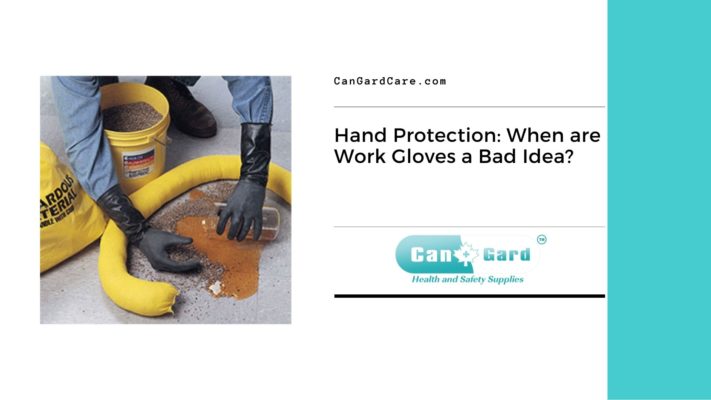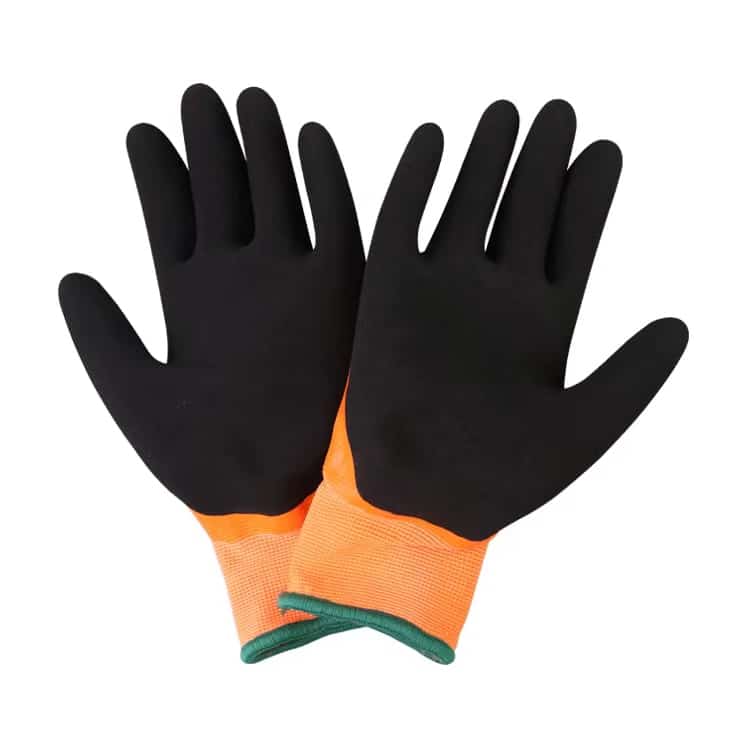No products in the cart.
Gloves
Hand Protection: When are Work Gloves Needed?
Workers are exposed to chemical hazards daily. From deadly poisons to corrosive acids and caustic alkalis, the workplace is full of dangers that can harm hands if not handled properly. However, just wearing work gloves isn’t always enough protection against these substances, and it may even make things worse! This blog post will explore some situations where safety gloves might be doing more harm than good!
What are PPE Gloves, and What Do They Protect Against?
PPE stands for Personal Protective Equipment. This type of glove is specially designed to protect against harmful substances that can contact your skin during a workday, such as chemicals and other hazardous materials.
It’s important to note that PPE gloves are usually not water-resistant or chemically resistant, so they’re only effective in low-risk situations where there isn’t much danger of coming into direct contact with chemical hazards. For instance, these gloves might be suitable if you have an incidental spill in the lab but would be inappropriate when handling corrosive acids without first taking appropriate precautions!
Pairing them up with another pair of gloves, like nitrile gloves on top, will give better protection from different types of hazardous chemicals, so it’s good to have a couple of different pairs in your kit.
What if You Can’t Wear Gloves?
Some people might find that they can’t use gloves for their workplaces, but there are other ways you can protect yourself from chemical hazards if you’re not able to do this. A respirator is an effective way of reducing the risk of coming into contact with hazardous chemicals and gases during work hours since many types will come through skin contact or inhalation – and make sure to get a mask made specifically for these purposes! There are also some heavy-duty materials like Tyvek suits, which provide excellent protection against the most dangerous substances. If you need more information about what else might be available, check out our hand protection section.
The Benefits of PPE Work Gloves
Hand protection for workers is critical. Workers should be careful not to wear ordinary work gloves in the presence of chemical hazards.
In many situations, gloves are the best solution for protecting your hands from hazardous chemicals. They’re inexpensive and can be easily disposed of when they become soiled or damaged. Heavy-duty chemical protection is also available with disposable nitrile gloves that fit snugly to the skin without giving in to contact irritants and spills. This kind of glove can help protect against most chemicals.
A good hand protection glove is the best way to keep hands safe in a hazardous environment – it’s important to remember that while these gloves are an excellent solution, they’re not perfect and should never be worn alone when working with chemical hazards. They can also be quite hot if there’s no ventilation or air circulation, so make sure to remove them after use.

When is Wearing Work Gloves a Bad Idea?
Wearing work gloves can be detrimental when they impair tactile sensation, restrict movement, or don’t suit the task. For instance, during precision tasks, like assembling small parts or using touchscreens, gloves can reduce dexterity. Additionally, wearing gloves around rotating machinery poses entanglement risks. Always match gloves to the specific job to ensure safety and efficacy.
Always be sure to check with your employer and legal guidelines when it comes to PPE requirements.
How to Choose The Right Type of Glove For You?
Choosing the correct type of glove starts with identifying the hazards that you’re exposed to.
There are three major categories of gloves: general-purpose, chemical protective, and medical/surgical.
General-purpose gloves provide a basic level of protection for everyday trades such as construction or food service industries; they should be used in moderate contact situations where there is no risk of injury from sharp objects like needles, knives, etc.; these types include latex gloves (thin), nitrile (medium) and vinyl (thick). Chemical protective gloves work well when handling hazardous materials or chemicals without risking exposure to your hands and prevent hand injuries.
This type of arm coverings includes various styles, such as neoprene, industrial rubber gloves, and PVC disposable wear. Medical/Surgical Gloves are designed for working with non-sterile conditions.
Where Can I Buy Work Gloves?
You can buy it online at Cangardcare.com or in a local safety supplies store.
Taking Care of Work Gloves So They Last
Taking care of your gloves is vital to prolong their life. It’s a good idea for workers always to wear them inside out when putting them away, or at least wearing the outside of the glove in contact with chemicals and then turned it right-side-out before leaving work.
Types of Gloves to Consider When Buying Your Next Pair
Choosing the right type of safety gloves for your industry and workplace is essential. There are many different types of gloves that can be used for various work needs, so it’s best to do some research before deciding on the right one.
- Abrasive Gloves: These resistant gloves offer protection against sharp objects such as metal or glass fragments
- Barrier Protection: Glove material is often made from nitrile rubber. These rubber gloves protect workers from skin contact with oil, chemical burns, burns from acids, etc.
- Disposable Gloves: Whether you’re using them to avoid cross-contamination in food service industries or need an easy way to dispose of hazardous materials without having to deal with cleaning up after yourself, disposable gloves are often your go-to option when working around messy situations where there could be spills.

